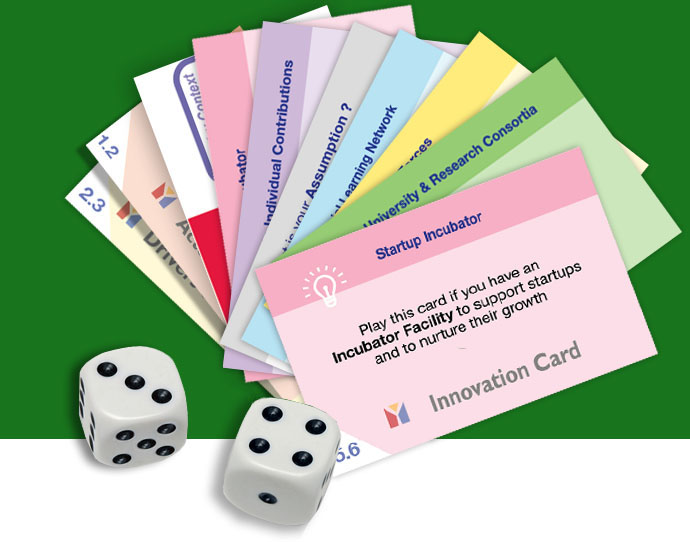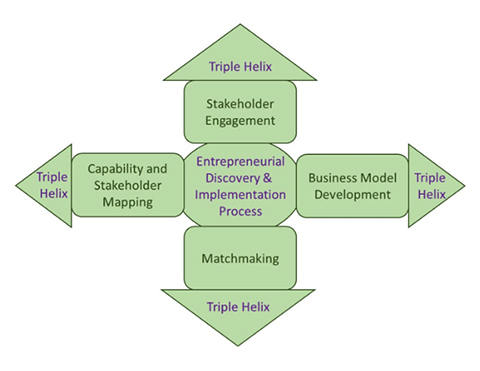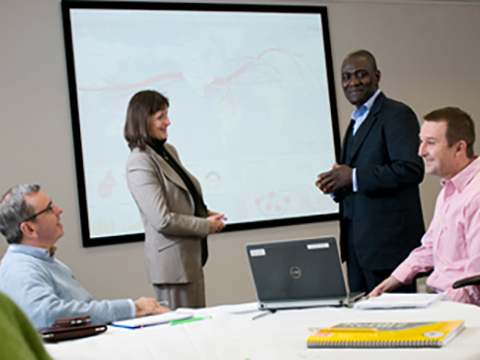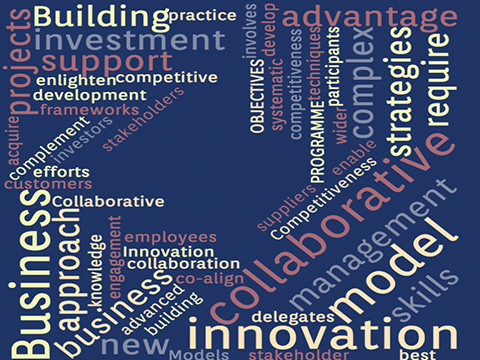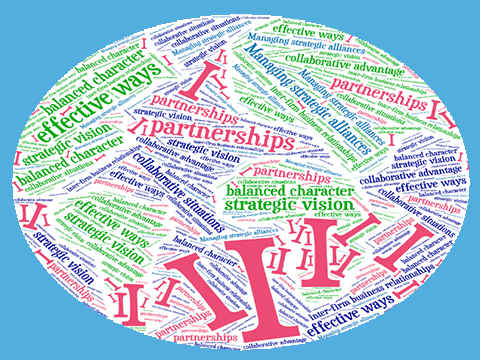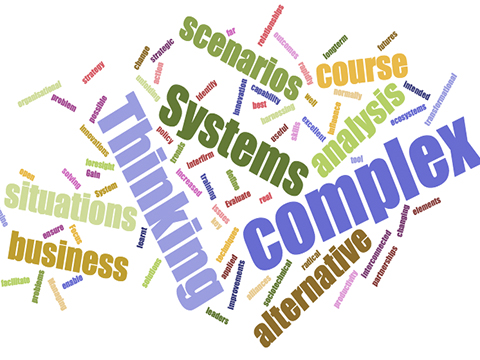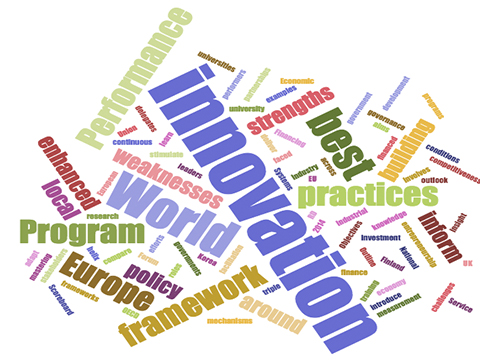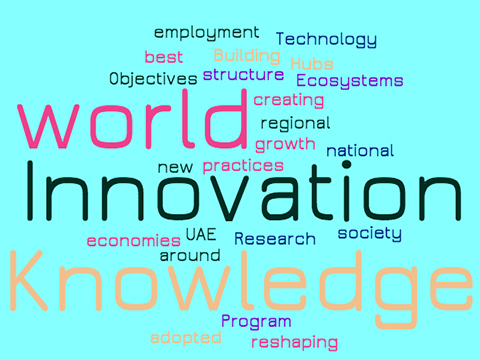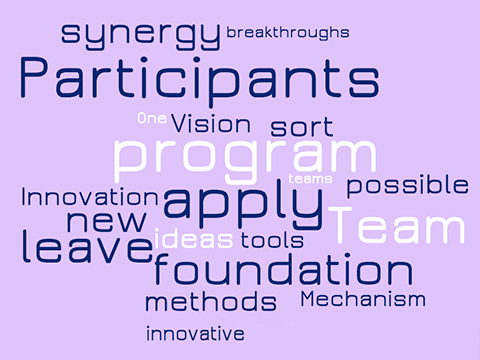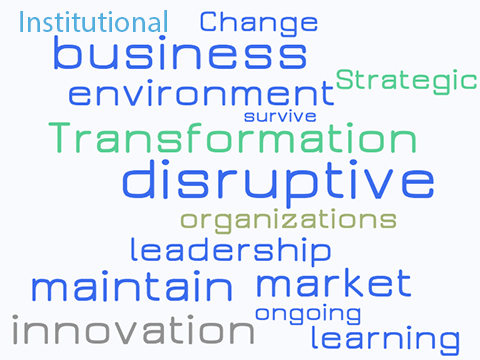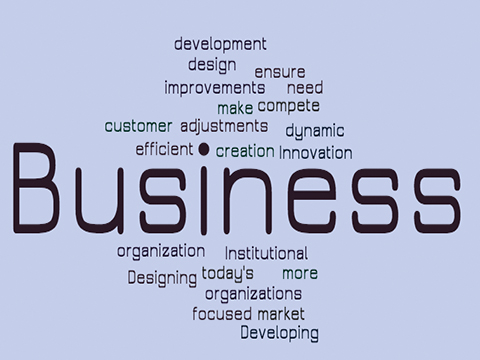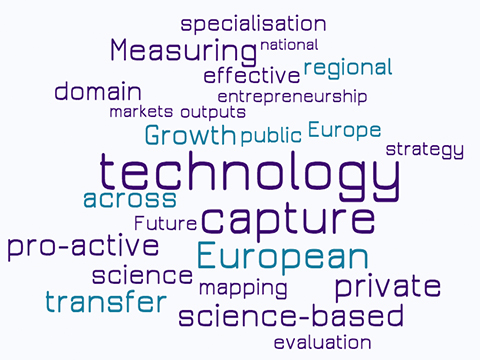 TRAINING:
TRAINING:
In house training programmes for academics and executives around the world
 Index
Index

Building a How-to-Do
Practice for Scenario Development
and Multistakeholder Engagement
 Triple Helix Scenario Practice Interactive Game:
Triple Helix Scenario Practice Interactive Game:
Triple Helix Scenario Planning is an interactive game that facilitates consensus building, stakeholder decision making and future looking action plan. It combines a Scenario Planning technique with the Triple Helix model of multi-stakeholder coalitions, mobilised to address the challenges of our world. The objective of this game is to create an innovative solution to a complex problem through adopting a multi-stakeholder approach and well-defined university-industry-government interactions –by effective communication, building and managing relationships, and institution building.
 Triple Helix for Action:
Triple Helix for Action:
In house training programmes for academics and executives around the world
 Building a ‘How-to-Do’ Practice for the Entrepreneurial Discovery
and Implementation Process.
Building a ‘How-to-Do’ Practice for the Entrepreneurial Discovery
and Implementation Process.
- A New Triple Helix Training Programme Methodology
and ‘How-to-Do’ Practice for the Entrepreneurial Discovery and Implementation Process
 Advanced Management - Achieving Superior Performance and Strategic Success.
Advanced Management - Achieving Superior Performance and Strategic Success.
This programme will focus on the management and leadership skills necessary for success in today’s fast changing business environment. In this programme you will learn how to:
- Manage and motivate people more effectively
- Create and harness the power of high performance teams
- Understand and effectively utilize strategic planning techniques
- Negotiate for positive results
- Utilize the Baldrige performance criteria as a standard of excellence and benchmark for your organization
 Building Collaborative Business Models for Innovation and Competitiveness.
Building Collaborative Business Models for Innovation and Competitiveness.
Business model innovation is the new approach to support complex investment projects that require collaborative strategies.
Business model innovation is the new approach to support complex investment projects that require collaborative strategies. Building competitive advantage through collaboration involves systematic efforts to co-align management and employees with customers, suppliers, investors and the wider stakeholders.
- enable delegates to acquire knowledge and skills for business model innovation
- enlighten participants about best practice in stakeholder engagement for innovation and competitiveness
- develop frameworks for building collaborative advantage
- complement management skills with advanced business development techniques
PROGRAMME OBJECTIVES
 Managing Strategic Alliances and Partnerships.
Managing Strategic Alliances and Partnerships.
Managing strategic alliances and partnerships requires a strategic vision, a balanced character, and brokerage skills bringing collaborating parties together to contribute to their maximum.
- to build collaborative advantage and accelerate position through partnership networks
- manage partnerships within and across firms
- the most effective ways to manage inter-firm business relationships
- how the firm perform in a collaborative situation
In this programme, you will learn:
 Systems Thinking and Managing Complex Scenarios.
Systems Thinking and Managing Complex Scenarios.
Systems Thinking is useful in policy or strategy analysis, in rapidly changing situations, and to ensure as far as possible that the outcomes are as intended. It is a capability and an excellent tool for the analysis of complex socio-technical problems, for foresight and alternative unfolding futures.
- Identify real issues in complex interconnected situations
- Gain increased productivity through business improvements in complex open innovation ecosystems.
- Examine long-term trends and alternative business solutions for harnessing radical innovations »
- Focus on the key elements of complex scenarios
- Evaluate the best course of action through strategic problem solving
The System Thinking techniques are normally applied to:
The Systems Thinking skills learnt in this training course will enable transformational leaders to define and facilitate organisational change, as well as to influence complex alliances, partnerships and other interfirm relationships.
 Risk Management, Control & Compliance Corporate Governance.
Risk Management, Control & Compliance Corporate Governance.
Recent events in the world have brought the subject of risk into higher profile. Evaluating the range of available risk management techniques and choosing the most appropriate response in each case is an increasingly significant element of managerial responsibility in today’s business environment. We cannot eliminate risk entirely, but our challenge is to identify the right risk to take and to minimize its potential negative impact.
- The knowledge to identify, analyze, evaluate, treat, monitor and control risks
- An overview of the tools and techniques used in risk management
- Insights into the fundamentals and role of risk management
- Effective risk management procedures based on ISO 31000:2009
- Increasing confidence in planning for risk and exercising internal control
This course will feature:
 Financing for Innovation.
Financing for Innovation.
Building National Innovation Systems involves continuous efforts of governments around the world. This training program aims to inform all stakeholders of the best world practices in governance, building finance mechanisms and facilitation for enhanced innovation performance.
- To inform delegates of the challenges faced by world leaders in mastering the knowledge economy
- To introduce the triple helix of government – industry – university roles and partnerships
- To compare strengths and weaknesses across innovation policy frameworks and programs in Europe
- To deliver insight into the best practices in Europe and around the world
- The ‘Innovation Union’ policy framework for Europe
- The European Service Innovation framework for
enhanced performance - The 2014 EU Industrial R&D and Investment Scoreboard: examples of best performers
- Performance measurement for research and innovation
- OECD framework to stimulate universities, entrepreneurship and local development
- World Economic Forum and outlook for innovation
and competitiveness - How innovation is financed in the UK, Finland and Korea – strengths and weaknesses
- How to learn from best practices and adapt to local conditions.
Program Objectives:
Program Outline:
 Building Innovation Ecosystems - Innovation and Knowledge Hubs:
Building Innovation Ecosystems - Innovation and Knowledge Hubs:
Research and Technology Parks around the world are reshaping the structure of regional and national economies, creating employment, growth and a new knowledge society. What are the best practices around the world and how they can be adopted in the UAE?
- This program will inform participants of the best practices around the world to stimulate knowledge and creativity in the economy.
- Learning how to transform the business environment into a nurturing ecosystem.
- Learning how to invest in knowledge hubs and to develop
strong institutions for the future knowledge society and knowledge economy. - Learning facilitation practices for multi-stakeholder engagement.
- Models of innovation
- Open innovation in an ecosystem
- Challenges to learning and creativity in open collaboration
- Strengths and weaknesses of the current models for knowledge transfer
- Learning from the best practice
Program Objectives:
Program Outline:
 Innovation Process & Mechanism.
Innovation Process & Mechanism.
This program focuses on how to get innovative ideas that are adopted by teams. Participants leave this program with tools to apply and methods to implement with their teams so that they get new ideas for possible breakthroughs. The program provides a foundation for team engagement, synergy and what so called “One Vision- One Team” sort of objective.
- Utilize Ideas Fluency technique to liberate thoughts
- Differentiate between process improvement and breakthroughs
- Get new business ideas that are shared, feasible and never done before
- Establish institutional culture makeover from within
Program Objectives:
Program Objectives:
- Develop an Innovation Process
- Green Light Thinking vs. Red Light Thinking
- How to Plan for Innovation
- Innovative Planning Considerations
 Innovation in Strategic Transformation & Institutional Change.
Innovation in Strategic Transformation & Institutional Change.
Strategic transformation and managing innovation is an ongoing state of being for organizations who want to survive or maintain market leadership. When the business environment is disruptive, innovation keeps organizations competitive. Organizations should embrace innovation, learning and adaptability with the goal of creating smarter organization that can thrive in a world of exponential change. Organizations’ management then, have their work cut out for them as they compete in a world where the shelf life of business models is going down, thus there is an urgent need for tools, skills, and experience to envision, implement new business models that will transform the organization. They must take on the challenge of experimenting and leveraging on people who have the will and the skills to visualize and implement change. As the legendary innovation mastermind Clayton Christensen says: "You don't change a company by giving them ideas. You change them by training them to think a different way."
- The adoption of new business models
- The rapid pace of change created by innovation
- The increase of new market competitors
External market drivers are likewise forcing organizations to evolve and change their traditional business practices. These are:
Value and Benefit to Our Clients:
- Rapid response to the changing consumer & stakeholder demands
- Increased ability to adapt to external changes and market environment
- Organizational stability in terms of developing employees for a sustainable future
- Innovation projects in the organization’s pipeline increases over time
- Increased quality of projects that are in the organization’s pipeline as the organization’s innovation capability increases
- Innovation successes positively impacts the organization’s image
- Sparks the interest of external stakeholders and may promote mutually beneficial partnerships
 Innovation in Designing & Developing Institutional Business Models.
Innovation in Designing & Developing Institutional Business Models.
To compete in today’s dynamic market, there is a need for organizations to make improvements and adjustments to the design and development of business models to ensure the creation of a more efficient and customer focused organization. To achieve this, organizations need to reflect the customer’s / user’s needs by involving them in the product/service design and development process. This is the activity of efficiently bringing together - organizing and planning people, infrastructure, communication and material components of a service in order to improve quality and the interaction between service providers and customers. It is a creative and customer centered design process that is used by organizations to create value for their customers and serves as a competitive advantage as well.
This has evolved from a mix of established design disciplines, business strategies, and best practices to create a process that works across multiple touch points and platforms. The use of service design as a means to institutionalize business models is an emerging trend which has leveraged on the service sector and which has proven to be a key engine of economic and job growth, and has in fact been adopted by both the public and private sector.
- Higher quality of service definition therefore higher quality service
- More successful innovations and reduced product / service failure risk
- Better fit between service and customer’s/user’s needs thus better service experience
- Unique brand of service
- Lower development cost
- Reduction of development time
Value and Benefits to Our Clients:
 Measuring Innovation in Europe for Future Growth.
Measuring Innovation in Europe for Future Growth.
Key Note Seminar with Dr. Emanuela Todeva BCNED and INNOVATE
This presentation will introduce the current efforts of the European Commission to harness the innovation potential in Europe, to introduce effective instruments for investment and coordinated action at regional and inter-regional level; to evaluate the gaps in interregional coordination of specialised capabilities across the European R&D space; and to address the need for global value chain strategies that bridge across the fragmentation of production and services.
The talk will deliver cases of regional policies that harness the innovation potential locked in fragmented assets, lead practices to implement the Innovation Union, and evaluation of the lead European initiatives, such as: .
- smart specialisation policy framework in Europe,
- science-based entrepreneurship,
- accelerating the knowledge transfer across knowledge markets,
- innovative public procurement of science and technology outputs,
- institutions for performance evaluation at the level of national innovation systems,
- mapping regional capabilities,
- pro-active European / Global Value chain governance and transfer of knowledge across the public and the private domain,
- effective monitoring of the value creation and value capture at regional level
European ‘knowledge for growth’ strategy,
 VIDEO.
VIDEO.
Video gallery of Training and Workshops
Copyright © 2021 - All Rights Reserved
Template by OS Templates
